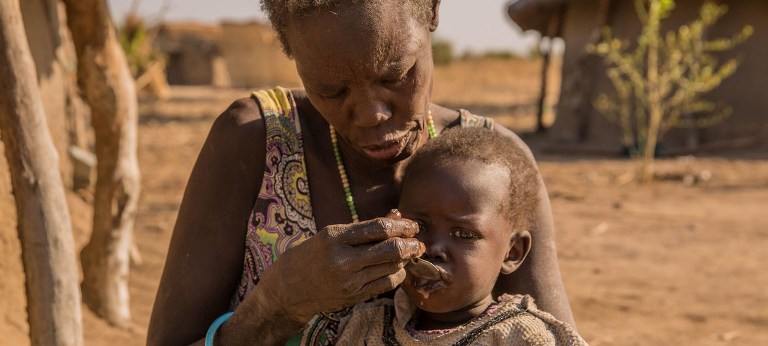More than half South Sudanese face severe food insecurity

February 20, 2020, Juba – About 6.5 million South Sudanese are facing severe food shortage said three UN organisations ahead of the formation of the revitalized transitional government.
Some 6.5 m people representing more than half of the population “could be in acute food insecurity at the height of this hunger season (May-July), three United Nations agencies warned today,” said the FAO, UNICEF and WFP and the South Sudanese government in a joint report on Thursday.
“The situation is particularly worrying in the areas hardest hit by the 2019 floods, where food security has deteriorated significantly since last June,” said the Integrated Food Security Phase Classification (IPC) report.
“Particularly at risk are 20,000 people who from February through April will be suffering from the most extreme levels of hunger (…) in Akobo, Duk and Ayod counties that were hit by heavy rains last year,” they further stressed.
Between now and July, the food insecurity will progressively hit Jonglei, Upper Nile, Warrap and Northern Bar el-Ghazal, with over 1.7 million people facing an “emergency” level of food insecurity due to the floods.
In January 2020, 5.3 million South Sudanese were already facing difficulties to feed themselves., according to the report.
Meshack Malo, FAO Representative in South Sudan said the Desert Locust swarms represent a new threat to the flood-affected country despite some improvements in food production.
“It is important that we maintain and scale up our support to the people of South Sudan so they can resume or improve their livelihoods and food production, and boost the government’s capacity to respond to the locust outbreak,” said Malo.
For his part, Matthew Hollingworth, WFP’s Country Director in South Sudan underscored that the floods also contributed to the current insecurity in the country.
“Any kind of improvement which had been made was counter-balanced by the floods at the end of 2019, particularly for the hardest to reach communities,” he pointed.
The UN agencies noted that the end of violence after the signing the revitalized peace pate in September 2018 led to some improvements in the overall food security situation.
They projected that the upcoming lean season would be slightly less severe compared to last year when 6.9 million people faced severe food shortage in many areas.
However, the three international organizations estimate that 1.3 million children will suffer from acute malnutrition this year.
(ST)
